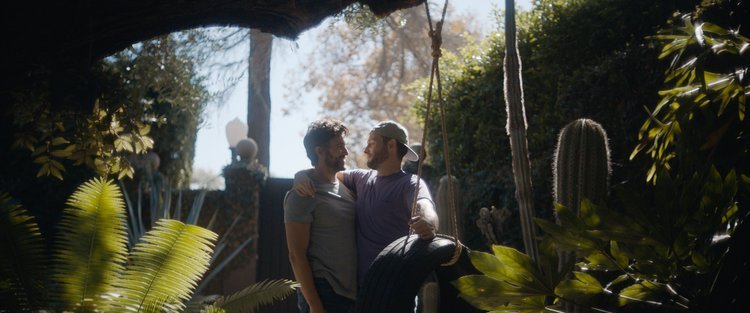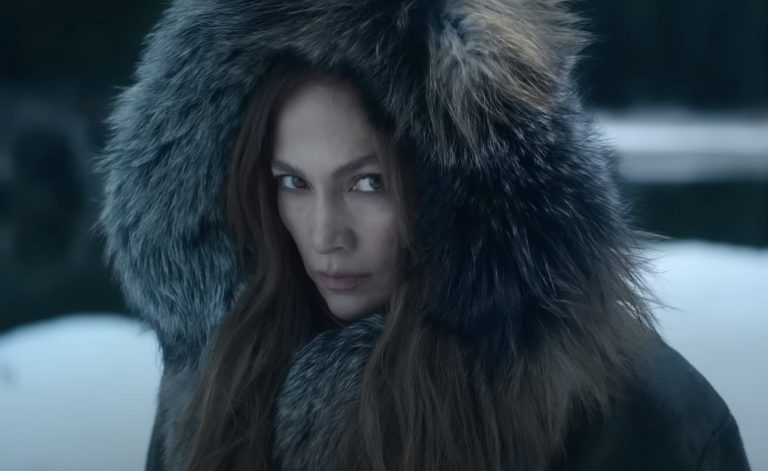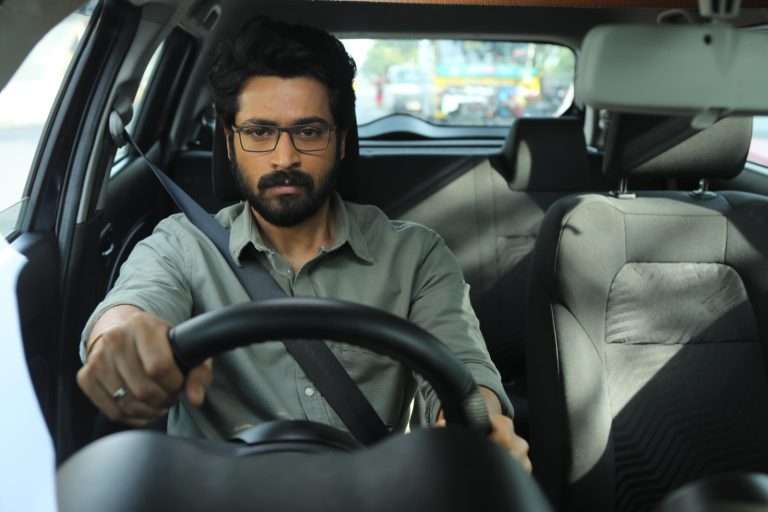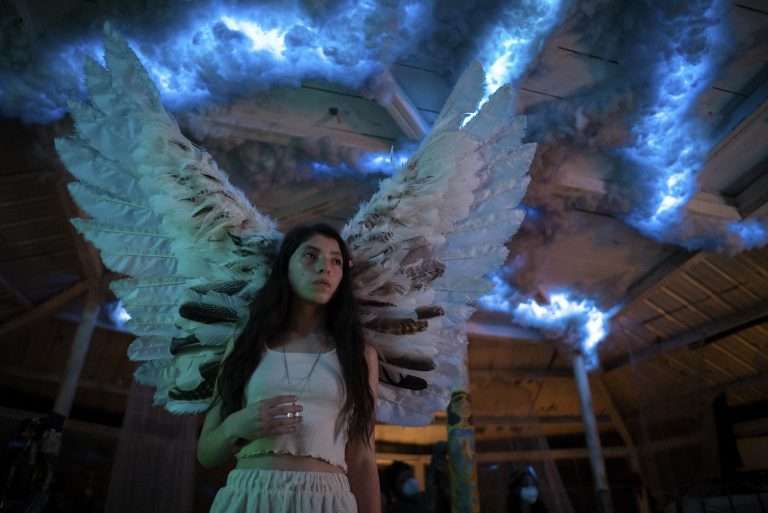The Mattachine Family (2023) Review: While The Mattachine Family (2023) marks filmmaker Andy Vallentine’s feature-length directorial debut, the title alone should inform us of his interest in Western queer history (titled after the pioneering gay rights organization, Mattachine Society, started by Harry Hay). If this wasn’t enough, one only needs to look at his previous Oscar-shortlisted film, The Letter Men (2021), an epistolary romance between two gay lovers during World War II.
Although The Mattachine Family does evoke a historical movement in American gay history, Vallentine’s feature debut is more interested in the contemporary queer way of life. Revolving around a middle-aged gay couple’s crisis regarding parenting, The Mattachine Family is a sincere attempt that seeks to locate several conundrums of a queer life even though sometimes its reach exceeds its grasp.
The film begins with our protagonist Thomas (Nico Tortorella), as he narrates his life story through photographs in a neatly edited montage sequence (only fitting since our protagonist is a photographer). We learn of Thomas’s realization of being gay as he first encountered muscular men in a cartoon, his relationship with his loving parents, and an eventual childhood tragedy that devastated his world.
Alongside his story, Thomas also tells the story of Oscar (Juan Pablo Di Pace), a famous child star in a popular sitcom whose acting career was derailed when he was ousted by one of the tabloids. Soon, Thomas meets Oscar, and they marry. Oscar wishes to start a family, but despite Thomas’s reluctance, they end up taking a foster kid, Arthur, for a year. But when Arthur’s mother is released from prison, the couple has no choice but to let Arthur go. And remind you, this is all in the film’s first five minutes.
As the narrative finally begins, we follow a depressed Thomas in his LA home, dealing with Arthur’s parting. Meanwhile, Oscar is in Seattle shooting for a show, hoping to resurrect his once illustrious career. Around the same time, Thomas witnesses his lesbian friend, Leah (Emily Hampshire), and her wife, Sonia (Cloie Wyatt Taylor), going through their own struggles to get pregnant.
At one of Leah and Sonia’s parties, Thomas meets up with Annie (Heather Matarazzo in an over-the-top cameo), a lesbian mom raising a son with her gay best friend, Todd (Carl Clemons-Hopkins), who also happens to be the father. As Thomas witnesses these queer families, he begins to wonder if he should consider becoming a parent once again. This time, however, Oscar is inhibited, citing his career and the restrictions of becoming a father. Will this strain the couple’s relationship and lead Thomas to re-evaluate his life choices?

At its core, The Mattachine Family is a film about change and how the passing of time inevitably forces us to come to terms with it. The emphasis on both personal growth and how political change has made it possible for new structures of feelings for sexual and gender minorities is the screenplay’s (by Andy and Danny Vallentine) biggest strength. Since surrogacy and adoption are now an option available to Thomas in a somewhat accepting world, the film views this new-found freedom with complexity.
Recently, Tushar Tyagi’s short film Saving Chintu (2022) dwelled on the hurdles faced by a gay couple while adopting an HIV-positive child from India. But while Tyagi’s focus was more on the societal restrictions and stigma encountered by gay couples, The Mattachine Family probes a bit deeper by reflecting on the dilemma of becoming a queer parent in a comparatively more tolerant world. While the couple in Tyagi’s short just wanted to be parents, Thomas in the film continues to vacillate between different choices, which puts him at odds with his husband.
A similar dilemma was well-explored in the Rebecca Hall-Dan Stevens starer Permission (2017), where a subplot involved a gay couple’s relationship tearing apart due to the fact that one of them wishes to adopt a kid. Although The Mattachine Family follows quite a similar narrative, it also has other thematic underpinnings.
As its title suggests, the film is also about finding your own chosen family and strengthening your bonds with them. The film devotes ample time to the struggles of Leah, as well as Thomas’s Asian friend, Jamie (Jake Choi), and the performances of the cast do communicate this shared camaraderie extremely well. Another highlight comes from Nico Tortorella’s central performance, which traverses through distinct emotional beats quite seamlessly.
The film also has bits and pieces of conversations about sex work, the commercialization of drag culture, surrogacy, inclusion, and stereotypes. While sincere, these interventions are never explored beyond a tokenist mention. This overstuffing also happens in the narrative where the film, until halfway, does not seem entirely sure as to what exactly it wants to say. This could have worked well with a slice-of-life approach, but considering the feel-good rom-com template adopted by the film, the screenplay does come off as a bit unpolished.
Nevertheless, despite its shortcomings, The Mattachine Family is a sincere and important attempt that dares to explore the existential dilemma of queer parenting and its various facets. Only a filmmaker with a firm grasp of the queer experience could have attempted something like this. For this reason alone, this family is worth paying a visit to!

![Triple Threat [2019] Review: An Enormous Waste of Talent & Potential](https://79468c92.delivery.rocketcdn.me/wp-content/uploads/2019/09/triple-threat-screenshot-1-768x320.jpg)
![Saturday Afternoon [2019]: ‘LIFF’ Review – A Well Crafted One-Take Hostage Drama](https://79468c92.delivery.rocketcdn.me/wp-content/uploads/2019/06/saturday-768x432.jpg)



